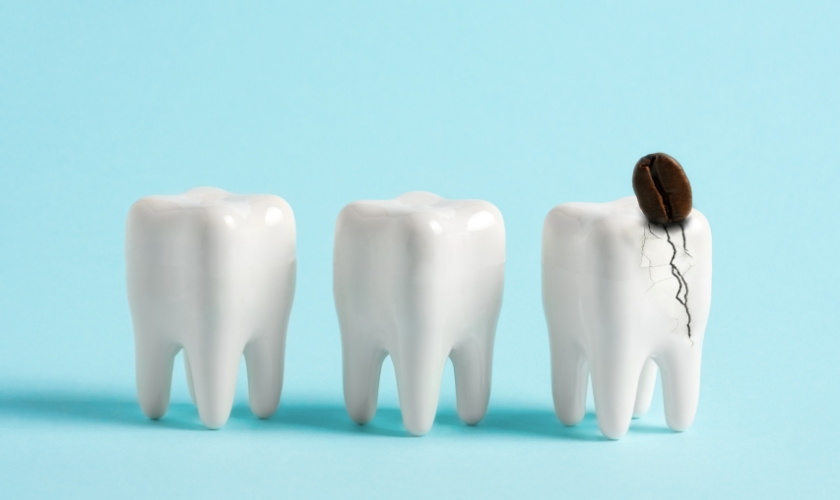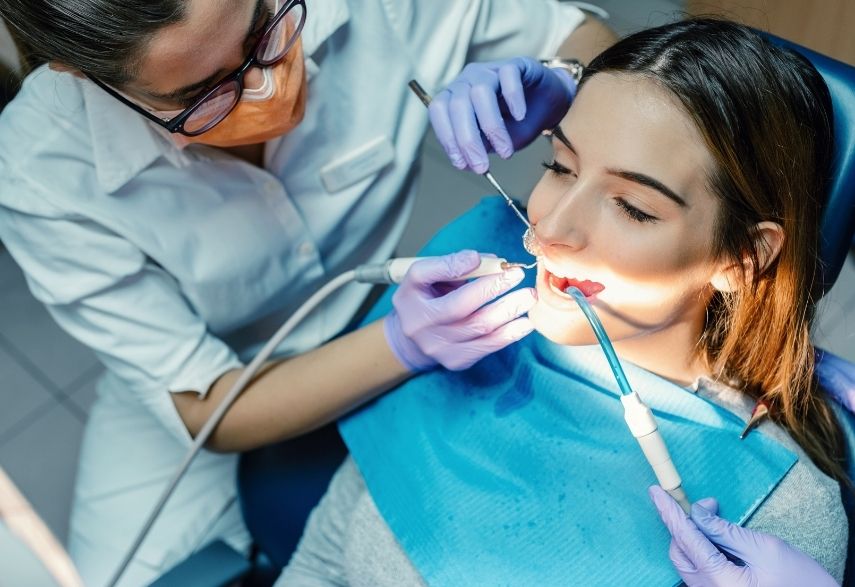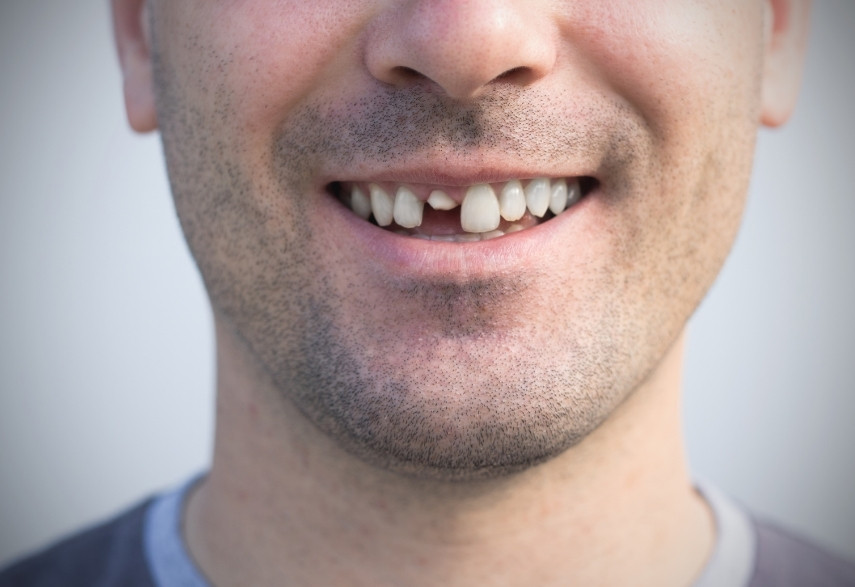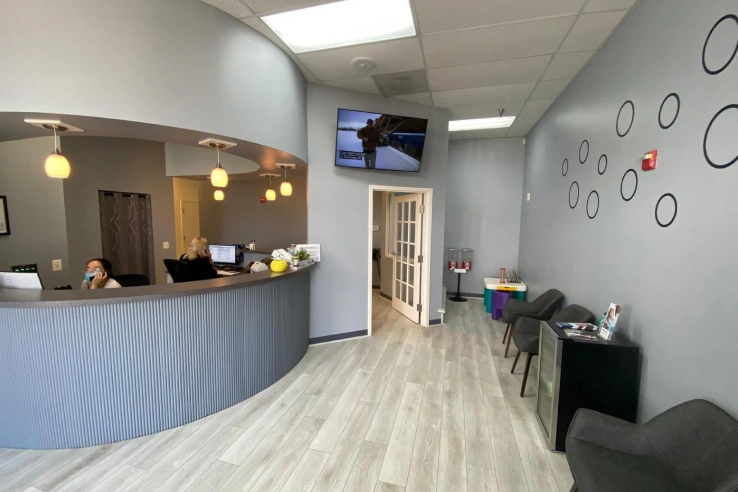We are not a registered Medicare/Medicaid Provider
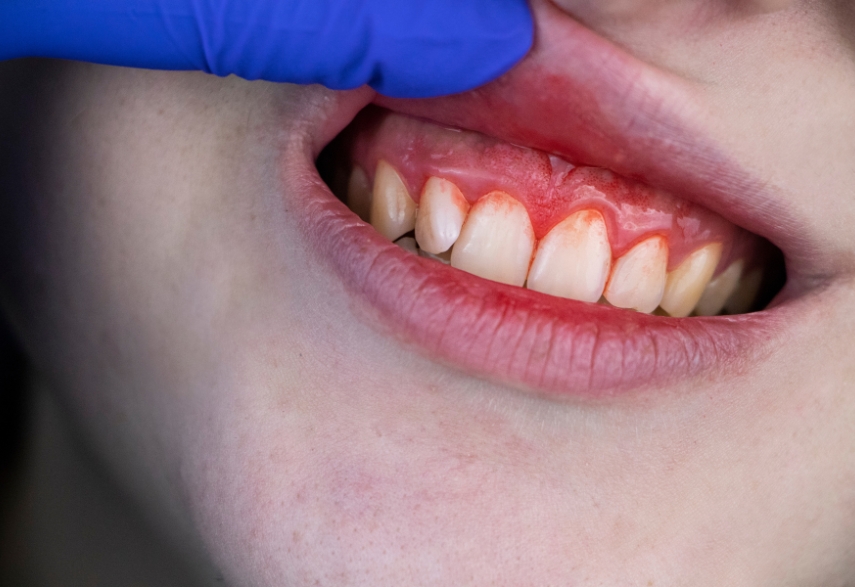
Are you seeing blood on your toothbrush? Ignored it. Have you seen a little red while flossing? No big deal. However, what if the bleeding won’t stop? What if it’s not just a one-time thing? This can be more than just a minor issue. It might be a dental emergency.
Many people think bleeding gums are harmless. However, persistent or severe bleeding can point out a serious problem. If you ignore it, it could cause bigger health risks.
When you understand when to call an emergency dentist, it can salvage your smile and potentially more. This guide will help you identify the signs of a dental emergency before it’s too late.
Common Causes of Bleeding Gums
Generally, bleeding gums have benign causes. However, it may occasionally be a sign of a dental emergency. The most common reason is poor oral hygiene. If you fail to brush and floss adequately, it causes plaque buildup. It will result in gingivitis. The gums become irritated and bleed. Keep in mind that excessive force in brushing or flossing will also harm the tender gum tissue.
Some medications, such as blood thinners, make gums more susceptible to bleeding. Hormonal shifts, particularly during pregnancy, tend to make gums more sensitive and more likely to bleed. Diabetes or blood diseases can also contribute. All of these can vary from slight to severe. However, extended bleeding means it’s probably time to visit an emergency dentist.
When Bleeding Gums Are a Dental Emergency?
Heavy, long-term, or repeated bleeding is a warning sign for a dental emergency. According to the American Dental Association (ADA), gum disease occurs in almost 47% of adults aged 30 and older, typically beginning with bleeding gums.
Yet, not all instances necessitate an emergency dentist. The situation is urgent when there is swelling, pain, pus, or evidence of infection along with bleeding.
Loose teeth, eating or swallowing difficulties can significantly contribute to the severity. Dark red or purple gums, or a foul taste in the mouth may be a sign of a severe infection such as an abscess. This may cause systemic complications if bacteria get into the bloodstream.
If you downplay these symptoms, it may convert a manageable condition into a full-fledged dental emergency. Frequent bleeding, particularly without any clear reason, always merits a call to an emergency dentist Centreville.
What to Do if Your Gums Won’t Stop Bleeding?
First, you have rinse your mouth out with salt water. Salt helps decrease bacteria and calms the gums. You can put clean gauze on the area that’s bleeding and apply gentle pressure. Avoid irritants such as spicy, acidic, or crunchy foods. This is because it could make the bleeding worse. If these don’t work, you must call an emergency dentist right away.
Heavy bleeding lasting more than 10 minutes or serious bleeding requires professional attention. A dental emergency provider has the ability to determine the source, whether it is from an injury, infection, or systemic health issue.
If bleeding is accompanied by severe pain, swelling, or shortness of breath, a trip to the emergency room may be warranted. Don’t delay since untreated gum problems are capable of turning into an emergency situation.
Preventing Gum Bleeding
Prevention is the key when it comes to preventing a dental emergency. Proper oral hygiene is important. You should brush twice daily with a soft-bristled toothbrush, floss once a day, and use an antibacterial mouthwash. Regular dental visits allow for issues to be addressed early on before they turn into emergencies.
Healthy eating contributes to healthy gums. Vitamin C—and vitamin K-rich foods, like citrus fruits and leafy greens, help fortify gum tissue. The use of tobacco is unforgiving to gums. It can cause them to bleed and become prone to gum disease.
When you avoid tobacco products and smoking, it can significantly eliminate the opportunities for the necessity of an emergency dentist. In addition, routine maintenance keeps gums in tip-top shape. It can also prevent a dental emergency from forming.
You should not neglect persistent bleeding. If the bleeding persists, make an appointment with our emergency dentists. Early intervention can avoid complications and help your smile remain healthy and radiant.
